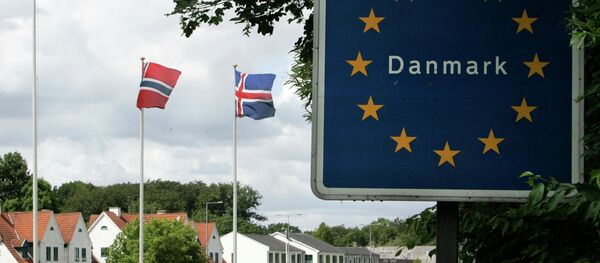One of the overriding principles of the European Union is the freedom of movement of people, products and services. And this led to the signing – 30 years ago – in 1985 of the Schengen Agreement.
Essentially this abolished all internal borders in lieu of a single external border within Europe. Yet, from the start it ran into trouble. There was much debate about which people were allowed freedom of movement – EU nationals or non-EU national as well.
Since Member States could not reach agreement, France, Germany, Belgium, Luxembourg and the Netherlands decided in 1985 to create a territory without internal borders. This became known as the "Schengen area", after the town in Luxembourg where the first agreements were signed.
The first five countries agreed to open their borders, abolish border checkpoints and effectively create a single external border between the five countries. But there were worries that security would be compromised because organized crime mobs and terrorists could exploit the freedom of movement. So the Schengen Information System (SIS) was set up to ensure each Schengen area state shared information and intelligence on known suspects.
The Schengen area gradually expanded to include: Spain, Portugal, Greece, Austria, Denmark, Finland, Sweden, the Czech Republic, Estonia, Latvia, Lithuania, Hungary, Malta, Poland, Slovenia, Slovakia and the 'associated country' of Switzerland.
Denmark maintains the right to close its borders again at any time, and there is growing political pressure for it to crack down further since the latest European migration crisis began.
The United Kingdom and Ireland never signed the Schengen Agreement and continue to control their borders. The current situation in Calais has arisen because the UK is allowed – by agreement with France – to have its border control point on French soil. Thus, UK border forces are turning away thousands of migrants in Northern France, which has precipitated the current chaos in Calais.
Borders Out of Control
The situation in Calais has not just begun. It has been rumbling away for years, but has come to ahead because of the diaspora from war-raved areas of the Middle East and Africa. This is now calling into question the wisdom of the principle of freedom of movement.
In #Europe, freedom of movement is suspended for those who look African/Arab: http://t.co/lV338Q2HFH By @JeremyCliffe pic.twitter.com/ezzsjnZtl6
— Yermi Brenner (@yermibrenner) July 23, 2015
Last year, former French President Nicola Sarkozy said European migration policy has failed and called for a Schengen II to be drawn up.
"Schengen I must be immediately suspended and be replaced by a Schengen II of which member countries can only be a part if they previously agree to the same immigration policy.
"Europe is not meant to organize social and migratory dumping, almost systematically at the expense of France."
Earlier this month, the Czech Republic Foreign Minister Lubomir Zaoralek told journalists that Greece had broken its commitment to the Schengen Agreement by not controlling its borders properly, which had allowed migrants to enter.
More than 60% of #Greece-bound #migrants are coming from #Syria http://t.co/K5hE2xG98m pic.twitter.com/fWSLdHkir1
— CJPME (@CJPME) July 29, 2015
"Significant portion of migration to Europe passes though Greece, that’s why there are concerns that if the situation in the country gets out of control and develops on its own, this will worsen Athens’ actions on migration policy," Zaoralek said.
As French police admitted they were swamped by the thousands of migrants in the Calais area attempting to climb onto truck and freight trains, many in Europe are secretly rueing the day they tore down their borders.



